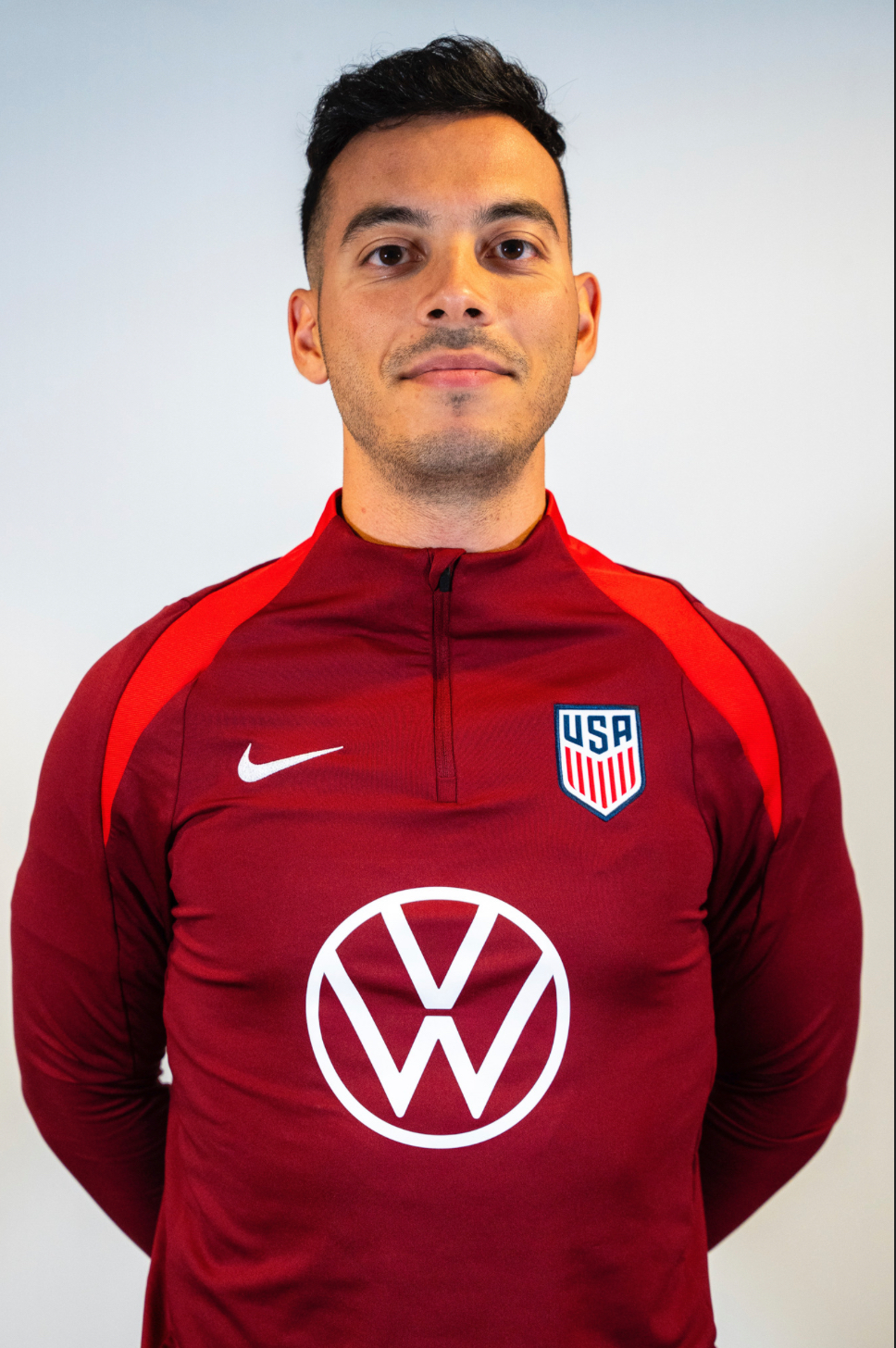Nov 6, 2025
PT alum Fiorante takes ‘beautiful game’ of soccer to new places

For Michael Fiorante, DPT, soccer has always been more than a sport. It’s a language that anyone can speak.
“The beauty of the game is that all you need is a ball to play it,” he said. “It doesn’t quite matter your physical ability level. It’s for everybody.”
That belief now guides Fiorante’s work as a physical therapist for U.S. Soccer’s extended national teams, which include athletes in the deaf, cerebral palsy, power, beach and futsal programs. He treats the players while they are in camp, and he travels with the teams for tournament play. “My role is new with these teams,” he said. “They haven’t had a full-time PT before, so part of it is learning as I go.”
Fiorante began his new position in September, just weeks after completing the 13-month VCU Sports Residency program in VCU’s Department of Physical Therapy. “I couldn’t speak more highly of the people I was with,” he said. “Professionally, they were fantastic mentors. Personally, I can call them a second family.”
Stepping into that community generated benefits far beyond advancing his clinical skills. “I pursued residency because this profession requires lifelong learning,” he said. “I wanted to gain more confidence and knowledge in the sports setting. VCU checked all the boxes.”
During his time as the sole PT sports resident, he treated patients with VCU Sports Medicine, and provided care for the university’s Division I student-athletes. In the program, he collaborated with physicians and developed expertise in specific treatments and best practices to aid athletes in recovering from injuries or adapting their movement to reduce future on-field risks. While he had the opportunity to work with most of the VCU teams, he found himself drawn to the field and court sports.
Fiorante’s mentor, program director Chad Taylor, DPT, associate professor and board-certified specialist in sports and orthopedic PT, and other faculty gave him both the freedom and guidance to specialize. “If you looked at how I spent my time,” he admitted with a laugh, “you’d probably see a lot of hours with men’s and women’s soccer.”
While at VCU, Fiorante also helped organize an amputee soccer clinic in partnership with Sportable, Mary Caldwell, D.O., from VCU Health Sports Medicine, and the American Amputee Soccer Association. “To my knowledge, nothing like that had happened in Richmond before,” he said. “We just wanted to spread the word about the sport and start a program where people could come out and play. My goal was to make it something that would continue.

His connection to adaptive sports began in PT school, when he met members of the U.S. Amputee Soccer Team at a conference. “That inspired me and a friend to start a regional team in Chicago,” said Fiorante, who completed his undergraduate degree at Loyola University and PT degree from Northwestern University. “I just fell in love with it. It showed that the world’s game can be played in so many different ways.”
Now, Fiorante’s own world is expanding again. Speaking on the eve of traveling to Japan with the men’s and women’s Deaf National Teams for the Deaflympics, he’s continuing to learn both professionally and personally. For example, he’s downloaded an American Sign Language app, with a goal of learning a little bit every day to make communication as easy as possible for the athletes he treats.
His athletes also range in age from 16 to 50, with the playing field varied by the program type, including grass, hard courts (futsal) and beach sand. Each surface contributes to different repeated risks and injuries. And with the cerebral palsy team, he is navigating the space between ailments caused by athletic play and impairments from the neuromuscular disorder and related conditions.
Fiorante is learning from the players themselves, many of whom balance training with full-time jobs and families. Because some of these athletes don’t have the same resources as the senior or youth national teams, his role includes coordinating care for them once they leave camp and helping them with their return-to-play programs.
Ultimately, Fiorante sees his work through the same lens that drew him to the field as a teenager recovering from injury. “I just want to help the athletes I work with get back to doing what they’re passionate about,” he said. “Whatever role I can play in that, big or small, that’s a success in my book.”
For Fiorante, that mission comes back to where it began as a simple game that unites people of every ability. “It’s called the beautiful game for a reason,” he said. “It’s for everyone.”